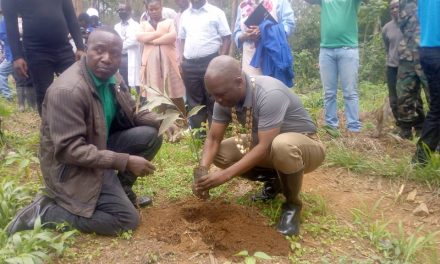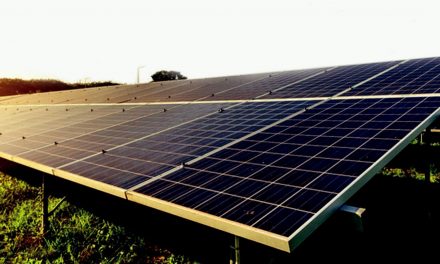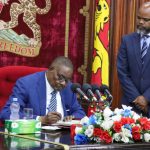
ISLAMIC RELIEF MALAWI Conducts Workshop on Climate Change
By Salimu Martin
Malawi is one of the most vulnerable countries to climate change and this has affected agricultural production which is the backbone of the country’s economy.
Climate change in the country has exacerbated by high population growth, rapid deforestation, and widespread soil erosion resulting in changing rainfall patterns, floods, droughts and prolonged dry spells.
Islamic Relief Malawi has so far engaged religious leaders and other people to civic educate them on how they can mitigate the climate change in the country and the world at large.
Speaking in Blantyre during a two day workshop, Country Representative for Islamic Relief Malawi Sherifa Mia said the workshop will help people in the country to identify other alternatives in fighting against climate change
“Despite the fact that Malawi’s greenhouse gas emissions are minuscule, climate change is hitting poor countries first as a result people are suffering, especially women, children and the elderly. Climate change is exacerbating the inequalities that already exist for women in Malawi,” Mia said.
According to Mia civic education plays an essential role in increasing adaptation and mitigation capacities of communities, and empower women and men to adopt sustainable lifestyles.
Mia further said that Climate change education is part of Islamic relief education for sustainable development program. It also makes recommendations for Malawian government and society to encourage them to take action to adapt to the messages of climate change and make sure that women’s participation must be central to any of these efforts,” she added.
Speaking to Insight Magazine one of the participants Sheikh Jafali Kawinga said that the workshop is beneficial as it will help people in the country to find ways of mitigating the climate change.
He further asked fellow participants to spread the message obtained from the workshop to those who did not attend.
“Let me commend Islamic Relief Malawi for coming up with this initiative. This is a very important event to everyone as climate change has affected us and what I can ask my fellow participant is to implement lessons and skills we have acquired from this training. My appeal to Islamic relief is to organize more training workshops about climate change,” Kawinga said.
The workshop was held in partnership with Leadership for Environment and Development (LEAD)
Over 180 million people in Sub- Saharan Africa alone could die as a result of climate change by the end of the century. Unpredictable rainfall patterns, lower crop yields, soaring of food prices and dwindling natural resources are already causing increased human migration, tension and conflict.
Despite the fact that Malawi’s greenhouse gas emissions are minuscule, climate change is hitting poor countries first as a result people are suffering, especially women, children and the elderly
































